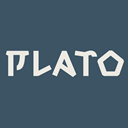Top Olympus Alternatives for Conversational AI Research
Olympus, developed at Carnegie Mellon University (CMU) in the late 2000s, has served as a cornerstone for researchers in conversational agents. Its robust architecture, incorporating components like the Ravenclaw dialog manager, CMU Sphinx speech engines, Phoenix for NLP, and various synthesis interfaces, has enabled the rapid implementation and testing of complex conversational systems. However, as the field of conversational AI evolves, researchers and developers often seek Olympus alternatives that offer different functionalities, newer technologies, or more streamlined approaches for their specific projects. This article explores some of the best alternatives available today.
Leading Olympus Alternatives for Dialogue Systems
If you're looking for flexible, powerful, and often open-source solutions to build and test conversational agents, these alternatives provide excellent options that build upon or diverge from Olympus's established framework.

ParlAI
ParlAI is a Python framework designed for sharing, training, and testing dialogue models, ranging from open-domain chitchat to VQA. As a free, open-source, and self-hosted platform, it offers researchers a versatile environment to experiment with various dialogue approaches, making it a strong Olympus alternative, especially for those focusing on model development and comparison.

DeepPavlov
DeepPavlov is an open-source conversational AI library built on TensorFlow and Keras, ideal for developing production-ready chatbots and complex conversational systems. This free, open-source, and self-hosted platform features robust artificial intelligence and chat bot capabilities, providing a modern and flexible Olympus alternative for those leveraging deep learning frameworks.

Plato Research Dialogue System
Plato Research Dialogue System offers a flexible framework for creating, training, and evaluating conversational AI. It is a free, open-source, and self-hosted platform with strong artificial intelligence features, making it a highly adaptable Olympus alternative for researchers seeking to customize their dialogue system development and evaluation workflows.

ConvLab
ConvLab is an open-source multi-domain end-to-end dialog system platform designed to help researchers quickly set up experiments with reusable components and compare various approaches. As a free, open-source, and self-hosted solution with robust artificial intelligence capabilities, ConvLab provides a comprehensive Olympus alternative for developing and testing complex conversational systems across multiple domains.

PyDial
PyDial is an open-source end-to-end statistical spoken dialogue system toolkit that provides implementations of statistical approaches for all dialogue system modules. This free, open-source, and self-hosted platform focuses on artificial intelligence, offering a complete and statistically-driven Olympus alternative for researchers working on spoken dialogue systems.

Virtual Human Toolkit
The Virtual Human Toolkit is a collection of modules, tools, and libraries designed to aid researchers and developers in creating virtual human conversational characters. As a free, self-hosted platform with strong artificial intelligence features, it offers a specialized Olympus alternative for those focused on embodying conversational agents within virtual environments.

Rasa Core
Rasa Core manages dialogue using machine learning, allowing it to improve with every interaction without relying on rigid state machines. This free, open-source, web-based, and self-hosted platform focuses on bots and machine learning, making it a powerful and flexible Olympus alternative for building scalable and context-aware conversational AI.
The landscape of conversational AI is rich with innovation. While Olympus has undeniably played a crucial role in the field, these alternatives offer diverse approaches, updated technologies, and specialized functionalities that might better suit your current research or development needs. We encourage you to explore each option to find the best fit for your next conversational agent project.